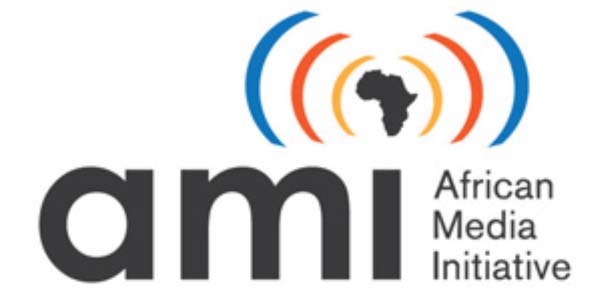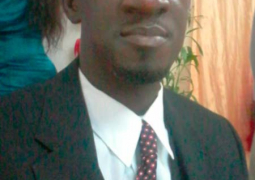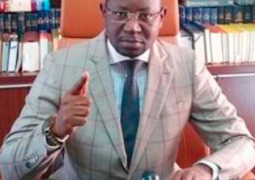
An important debate on the roles and responsibilities of media is currently taking place in Africa. I believe it is possible to distinguish two, possibly more, but certainly two schools of thought that form the basis of that debate.
They speak to the challenges, the constraints (self-imposed or otherwise) and possible approaches to understanding and ultimately addressing impediments to effective media action in Africa.
I want to briefly examine the main contours of those schools of thought and show how they may inform our efforts to ensure that media in Africa is not only free and sustainable but also capable of making significant contributions to improving the quality of life on the continent.
I know that media is not often directly associated with Quality-of-Life issues but, given its power to transform society, it is my firm conviction that Africa must see its future as much through the prism of politics and economics as through the role that media plays.
The schools of thought I have mentioned reflect where Editors and Media Managers stand on their assessment of the industry today, and these positions ultimately determine outcomes in media action.
One school of thought holds that media in Africa is doing exactly what it can (and should do) given current constraints, which include in many cases: unfriendly and sometimes hostile political environments, limited access to new technologies, weak professional capacity, inexistent market and audience information, a reduced corps of competent media managers, and so on. Let’s call this the School of Sufficiency – the “S” School!
The School of Insufficiency (the “I” School, for want of a better term) takes a wholly different stance: it argues that media in Africa could, in spite of known constraints, do a whole lot more.
The growing voices from the “I-School” argue that media could do a much better job accompanying what is clearly a continental renaissance; that they could better inform and moderate our public discourse, contribute more to ongoing social, economic and political conversations, and play a more decisive role in setting the national and regional development agenda.
[Media is doing as well as it should, thank you! Media is under-performing in the dynamic context of growth in Africa.]
“There is a historical necessity and a political urgency to resolving this debate and clearly defining the role of media in the transformations taking place in Africa,” according to one of the continent’s lead thinkers on the subject, Professor Theophile Obenga of the Congo.
He makes the point that until citizens across Africa develop a better understanding of the historical forces that shaped the continent and take an informed appreciation of where Africa is going, the perceived Renaissance will be little more than a pipe dream.
The role of media is central to the achievement of this endeavour, Professor Obenga concludes.
My friends and I have spent a good part of the last year taking a hard and critical view of the media industry in Africa; its strengths and weaknesses; the challenges and opportunities, and whether or not media, in its current form, is up to the task of helping determine the project to rewrite the course of African history and the narrative that goes with it.
Coming back to the debate, S-School proponents who claim the media is doing as much as it can, point, first of all, to the rapid expansion of media organizations, the increasing access to new technologies, the unstoppable collapse of monolithic thought on media and the parallel growth in media freedoms across Africa, and to the multiplicity of forums that touch on one or more aspects of the question and try to find meaningful responses to them.
The I-School responds with more questions: where is media on the important issues facing a modernizing and emergent Africa? Are there any collective media thoughts or compelling reports on the critical issues of political and economic governance, youth unemployment, peace and security, regional integration, climate change, natural resource management, China-Africa relations, the African Union’s Agenda 2063 and the direction and quality of change on the continent? How are media professionals across the continent enriching citizen understanding of these critical issues which are today re-designing the social, economic and political architecture of 21st century Africa?
The debate within the industry, between the Complacent S-School, and the Disruptive I-School, will go on for a while longer, energizing an environment in which media houses and professionals continue to try to position or reposition themselves in the dynamic processes of social transformation in Africa.
What is Going On?
On the ground, in the meantime, a lot is happening, even if there is a sense, sometimes, of disharmony, isolation, and uncoordinated action.
Last November, a Consultative Forum on Media Strategies, hosted by my organization – the African Media Initiative – brought together most of the key players in African media to seek to find synergies in their work and build a collaborative platform for collective action.
We have since engaged in some joint action, recently bringing together media leaders to places such as Addis Ababa, Abidjan, Kampala, Kinshasa, Nairobi, and N’Djamena, to emphasize respect for professional ethics, strengthen technological adaptation, define ways to put media at the very center of national and regional development, and agree on media’s role in overall national governance.
It is these last two that sparked that defining debate on the role of media in Africa today.
What Should Be Done?
There is an emerging consensus on what has to be done to achieve that which everyone currently agrees on: that Africa’s economic emergence will not be sustained, lasting peace will not be achieved and social cohesion will not improve without the full implication of media. The following becomes an absolute necessity:
1. Media – whether in hi-tech, mid-tech, low-tech or no-tech Africa – (media in all of these environments) must recognize the technological imperative to adapt or die.
2. Social media is becoming the primary source of news for citizens across the region, closing in on a space that has remained the private preserve of radio. Industry leaders have to take note and act, or run the risk of loosing those they are desperately trying to reach.
3. Media and its support agencies must act to narrow the gap between media content and national development agendas.
4. Thematic specialization is a powerful way of ensuring that media remains informed, knowledgable and relevant. In spite of the huge financial constraints that this would seem to impose, strategies to deal with this imperative would have to be found. The AMI has brought one such strategy to the market.
5. Joint content production and the pooling of resources are a necessity and may well soon become the order of doing business. Media leaders ought to understand that and get on with it.
6. It is imperative to know what audiences and readers want, and work to deliver the goods. Media market research is virtually non-existent in most of the continent – a situation that should be corrected as soon as possible.
7. The greatest challenge to media freedom is self-induced: putting out content that has little regard for what audiences and readers want; disregarding the ethics of the profession; not maintaining high professional standards; and not paying adequate attention to the business dimension of the news business.
It is with some measure of pride that I point out that we have media leaders from Africa who are already acting on that agenda, building resilient systems that take these elements into account. Their work needs to be supported and scaled up. They are finally telling Africa’s story, from an African perspective, to African and to the world. They are also bringing the world to Africa, in ways that have never been done before. In ways that may not be obvious to most, they are among the true defenders of freedom who should be recognized as we celebrate World Press Freedom Day!



